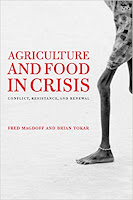australianblog
australianblog.com.au australianblog.com.au australianblog.com.au australianblog.com.au australianblog.com.au australianblog.com.au australianblog.com.au australianblog.com.au australianblog.com.au australianblog.com.au australianblog.com.au australianblog.com.au australianblog.com.au australianblog.com.au australianblog.com.au australianblog.com.au australianblog.com.au australianblog.com.au australianblog.com.au australianblog.com.au australianblog.com.au australianblog.com.au australianblog.com.au australianblog.com.au australianblog.com.au australianblog.com.au australianblog.com.au australianblog.com.au australianblog.com.au australianblog.com.au australianblog.com.au australianblog.com.au australianblog.com.au australianblog.com.au australianblog.com.au australianblog.com.au australianblog.com.au australianblog.com.au australianblog.com.au australianblog.com.au australianblog.com.au australianblog.com.au australianblog.com.au australianb...




